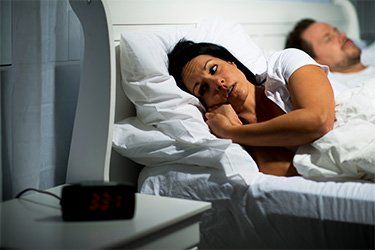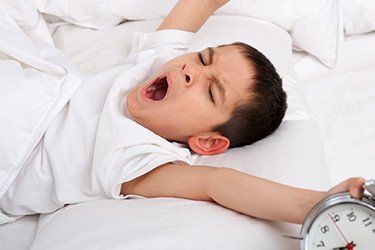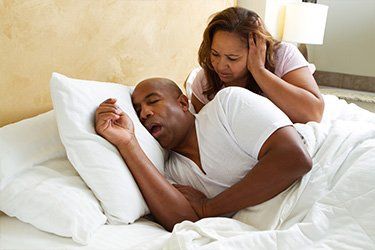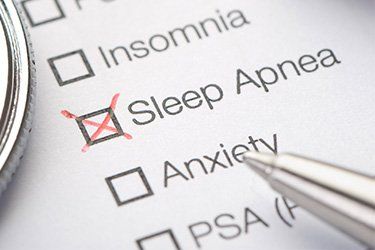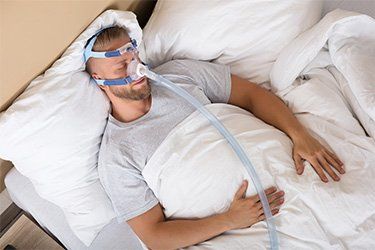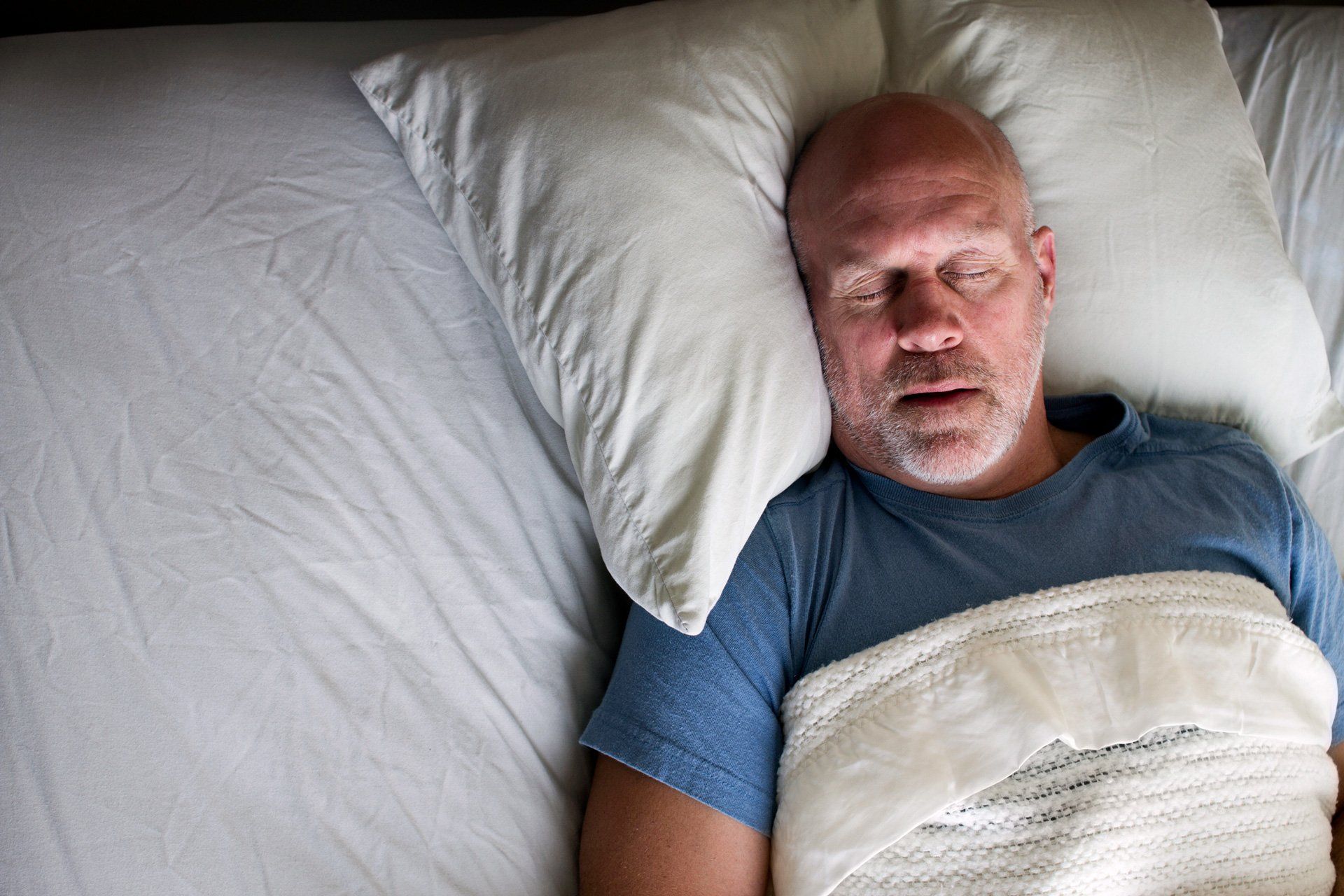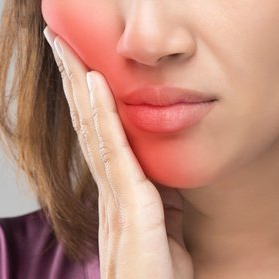Dementia, Alzheimer’s and Sleep Apnea
Multiple scientific studies suggest that untreated sleep apnea can increase a person’s risk for Alzheimer’s or dementia. Recent research on the link between dementia and sleep apnea shows that untreated obstructive sleep apnea doesn’t just cause mild cognitive impairment during the day due to tiredness but can actually affect brain health. These discoveries make it even more vital that a person suffering from sleep apnea find a permanent and comfortable solution for this disorder.
A new discovery in the treatment of sleep apnea offers permanent, non-invasive recovery from apnea. Rather than forcing air into the throat or adjusting the jaw for the night, the Vivos Biomimetic Oral Appliance actually reshapes a patient’s bone structure so it better supports an open airway. The Vivos appliance is also used for people who are likely to develop sleep apnea in the future.
Find Out If the Vivos Appliance Is Right for You
Learn how the Vivos Biomimetic Oral Appliance can help you overcome apnea and lower your risk of dementia. Call Breath of Life Dental today to attend a free educational seminar or ask about a personal consultation with Dr. Maryam Seifi. Call (301) 822-2670 , email info@breathoflifeteam.com or submit an online request .
How Can We Help You?
Research on the Link Between Sleep Apnea and Alzheimer’s Disease
Sleep researchers are finding that lack of obstructive sleep apnea (OSA) treatment and dementia risk may go hand-in-hand. One study published in the American Journal of Respiratory and Critical Care Medicine in 2017 recruited 208 adults suffering from OSA and found that, over a two-year period, their brains showed more changes associated with the development of Alzheimer’s disease than study participants who did not suffer from apnea.
A
similar study published by the Sleep Research Society in 2021 included over 50,000 participants over 65 who were diagnosed with OSA. Researchers found that participants who received positive airway pressure therapy had a decreased risk of developing Alzheimer’s disease or dementia compared to participants who did not receive consistent treatment.
And a
third study published in the medical journal of the American Academy of Neurology in 2023 included 140 adults with sleep apnea and found that the poor quality of sleep caused by apnea did negatively affect participants’ brain health. This research suggests that untreated OSA can lead to an increase in dementia risk, especially in older adults.
How Obstructive Sleep Apnea Can Impact Brain Health
If you’ve ever had to work after a night of bad sleep, you’ve likely experienced firsthand how hard it can be to concentrate, remember things, and handle daily tasks. This is because your body—including your brain!—needs deep, restorative sleep to recover from the day’s activities. Deep, restful sleep is absolutely vital for your quality of life. Not only can poor sleep affect your mood and ability to focus during the day, but consistent lack of sleep can lead to a wide variety of health problems like increased blood pressure, depression, and even dementia.
One night of bad sleep is hard, but your body can recover over the next few nights with enough restorative sleep. People with OSA, however, are getting bad sleep
every
night. This means there is no way to “catch up” on their sleep. Over time, the lack of restorative sleep can cause a
buildup of waste (such as certain proteins and hormones) in the nervous system and brain tissue, some of which is commonly found in patients with Alzheimer's disease. This explains why sleep apnea and dementia are so closely linked.
Sleep Apnea and CPAP Machines
The most common treatment for OSA is continuous positive airway pressure (CPAP) therapy, which involves wearing a mask during sleep that blows air into the throat to keep the airway open and prevent instances of apnea. Unfortunately, many patients find CPAP to be very uncomfortable—so much that nearly 50% of patients stop using their CPAP machines within the first year of treatment. But treatment is necessary to improve overall health and reduce dementia risk and the development of Alzheimer’s disease.
New Obstructive Sleep Apnea Treatment
Thankfully, there is a better solution: the Vivos System. This is a nonsurgical treatment that uses specialized oral appliances to open the airway during sleep and prevent incidents of apnea. While most oral appliances for obstructive sleep apnea treatment simply reposition the jaw, the Vivos System can actually reshape the jaw to correct the underlying causes of mild to severe obstructive sleep apnea.
The best part is that treatment with the Vivos System is temporary, but the results are permanent. Unlike a CPAP machine which patients have to wear for the rest of their lives, you only need to wear your Vivos oral appliances for a limited amount of time. Once your treatment is complete, you won’t have to use the appliances any longer, and you will be able to enjoy restful sleep.
Find Out If the Vivos Appliance Is Right for You
Learn how the Vivos Biomimetic Oral Appliance can help you overcome apnea and lower your risk of dementia. Call Breath of Life Dental today to attend a free educational seminar or ask about a personal consultation with Dr. Maryam Seifi. Call (301) 822-2670, email info@breathoflifeteam.com or submit an online request.

